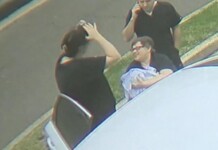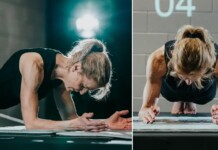![]() In the northern port town of Acre, Jewish and Arab high school students work together to transform rubbish into hand-crafted benches. And in the Galilee hills, Arab and Jewish women go for regular walks together alongside a pristine road that was once strewn with garbage.
In the northern port town of Acre, Jewish and Arab high school students work together to transform rubbish into hand-crafted benches. And in the Galilee hills, Arab and Jewish women go for regular walks together alongside a pristine road that was once strewn with garbage.
Those are two of the activities of LINK, a non-profit environmental protection organization that brings together Arab and Jewish residents of the Galilee. The main goal of LINK is encouraging Galilee residents to participate in environmental protection programs. But an outgrowth of these activities has been an improvement in relations between Arabs and Jews. . .
The organization, founded in 1995, has initiated a variety of projects, from stopping sewage pollution in one of the Galilee’s most beautiful nature reserves, the Shagur stream, to developing a public park, the first, on the mountaintop Bedouin community of Camun. The organization has convinced auto repair garages to install oil filters and launched paper-recycling projects in Arab towns.
Badria Biromi-Kadalft, director of LINK, explained that the recycling program in Acre brought students of both sectors together for the first time, "Even though they live in the same town, Arab and Jewish youth rarely have opportunities to meet. They go to separate schools, and live in different neighbourhoods. So, for most, this school project is the first time they have socialized regularly with youth from the other sector. There is a real click between them, and they talk a lot while working together."
The benches they are constructing — from recycled garbage and tires — will eventually adorn their schools.
Another project was spurred by tension between Arabs and Jews. Residents of the Jewish community of Tuval became increasingly annoyed that residents of Dir El Assad, a neighbouring Arab town, were littering the shared access road, says Biromi-Kadalft. LINK brought both groups together to launch a joint clean-up operation.
In the course of the project, the women from both communities formed close ties, and now go walking together regularly alongside the road they cleaned up. (In fact, Biromi-Kadalft is hoping to find funding to make a permanent walking path there.)
The organization was founded on the initiative of Stephanie Krone Firestone, an American-born social and environmental activist, who brought together a group of committed local residents.
If LINK is a unique organization, Biromi-Kadalft, its relatively new director, is — if not unique — certainly unusual. The 32-year-old mother of two is an Arab feminist who has taught leadership skills to Arab and Jewish teenage girls, and led groups in conflict resolution.
She holds a Master’s degree in urban planning from Haifa’s Israel Institute of Technology, which she has used to help improve the situation of Arab towns in Israel through her work at the Arab Center for Alternative Planning.
"For my thesis, I helped women in an Arab town initiate a local bus service that enabled them to leave their homes."
Until then, Biromi-Kadalft notes, there had been no public transport system because the town’s men — who own cars — didn’t need one.
"My hope is that more and more Arab women will enter the work force, and that men will share more responsibility for the family."
She is also a graduate of the Heschel Center for Environmental Leadership in Tel Aviv, training that she uses in her present position.
"I see the environment as not just a matter of ‘green’ issues, but wider social, cultural and economic aspects. My vision is that nature should not come at the expense of people."
Biromi-Kadalft is not alone in steering the organization. She works with Ahmed Haj, the former head of the Arab local council of Kaukab, Marc Rosenstein, an American-born Reform rabbi who lives in the region and runs a seminar that fosters pluralism and coexistence.
Having helped bring buses into an Arab town, and recycled benches into Acre schools, Biromi-Kadalft has her sights set on other novel ideas.
"I’d like to introduce residents to ecofeminism — seeing the way the environment affects women in particular, and how women can have an impact on the environment."
Biromi-Kadalft hopes to bring experts in that field to deliver lectures in the region and launch new projects in that spirit.
Reprinted with permission of Common Ground News Service
Source, June 4, 2006: Israel21c




















